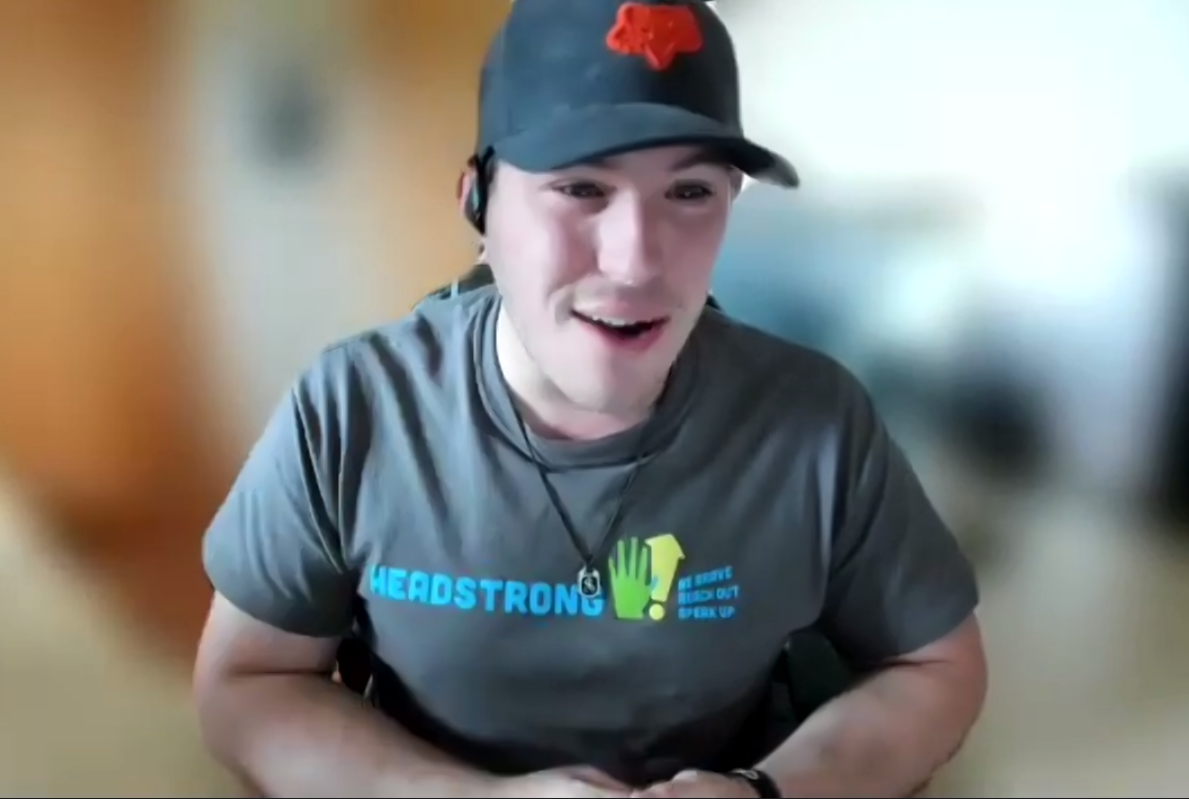Teaching students to be brave, reach out, and speak up about mental health

Subscribe to Catalyst
Subscribe to get our magazine delivered right to your inbox
Related Articles
Subscribe to Catalyst
Subscribe to get our magazine delivered right to your inbox
Related Articles
Mental Health Commission of Canada’s HEADSTRONG summits go virtual
When much of the world shut down in March 2020, HEADSTRONG program manager Fiona Haynes was heartsick.
HEADSTRONG summits are interactive gatherings that give young people the chance to learn about mental health and gain the tools they need to become anti-stigma champions and ambassadors in their schools and communities.
According to Haynes, “those of us involved in the program were able to see first-hand the positive impact we were having and also how great the need was — how much young people benefited from a safe space to listen, learn, and ask questions. But we were also encouraged by how incredibly empowered they felt when asked to put forward solutions.” Ever since she joined the program in 2016, Haynes has seen it grow through word of mouth from a single national summit to a program that has reached hundreds of thousands of students.
Finding a Plan B
“After the pandemic struck, I was in my living room, worried sick about how we were going to reach these kids, how we were going to make sure they knew they hadn’t been forgotten, how we were going to put out that lifeline and say, ‘We’re still here for you,’” she recalled. “But I soon discovered that I wasn’t the only one having those concerns. The whole team was thinking, We needed a Plan B.”
As it turns out, Plan B came together so quickly that Haynes now proudly calls it a “second Plan A.” She always knew that reaching fly-in and other remote communities would mean a re-think of conventional get-togethers. What she didn’t expect was that the new virtual summits, inspired by the existing HEADSTRONG concept but with distancing measures, would exceed her wildest expectations.
“We found the secret sauce,” said Haynes, who pointed to evaluation reports from the early pilot projects showing an equal effect across the range of positive behaviours that the in-person summits sought to promote — everything from help seeking to stigma reduction.
Traditional HEADSTRONG summits worked by gathering students together from various high schools over the course of a full day. After hearing inspiring stories of recovery, they participate in thought-provoking activities and become aware of the positive influence they can have to change attitudes and behaviours around mental health. Students then take their new-found knowledge back to their own school to help make it mentally safer, with support from a sponsor (teacher or school counsellor).
While the virtual edition follows a similar path, students remain in their classrooms while joining up with as many as five other groups. Led by MCs who have specific training in virtual communication, the events are split into 75-minute modules (being mindful of Zoom fatigue) that align with the summit’s three-part motto: (1) “Be Brave,” on mental health, mental wellness, and appropriate help seeking, (2) “Reach Out,” on understanding and challenging stigma, and (3) “Speak Up,” on how to take meaningful action.
Learning through connection
The way the summits are presented directly affects what participants take away from their experience. As one student put it, “I learned how neglected mental health is, the importance of reaching out, being mindful and aware, and realizing how strong and capable people with mental illnesses really are.”
This kind of heartfelt observation, said Haynes, is likely the result of “contact-based education,” which occurs when a HEADSTRONG speaker (often a young adult) shares their experience of managing or recovering from mental illness.
“Suddenly, it’s not so other,” Haynes explained. “We see students having their fears, insecurities, and vulnerabilities mirrored by a successful young person who is a good communicator and a positive role model — and then, it’s like a light switch: ‘I can have anxiety, I can feel depressed, I can feel alone,’ and I can also be a worthwhile person who can reach out for the support I deserve.’”
Such insight, in combination with knowledge of available resources, also gives students the confidence to offer appropriate support and encourage peers to seek help. Young people have an important role in this, given that friends are often the first line of defense when a problem crops up.
Building momentum
So far, HEADSTRONG’s three virtual pilots and official launch summit have all met with positive results.
“We had a tried and tested formula for in-person summits, and to see that translate well to a modified virtual version is heartening,” said Laura Mullaly, interim manager of knowledge mobilization with the Mental Health Advancement team. “We have rigorous evaluations that tell us, ‘Yes, this is working the way it’s supposed to,’ and to see those replicated with virtual summits means we can continue this important work, regardless of COVID measures.”
One comment on the virtual summit from a grade ten student says it all: “I’m more educated. I know how to get help, and I know how to help others.”
Suzanne Westover
An Ottawa writer and former speechwriter, and Manager of Communications at the Mental Health Commission of Canada. A homebody who always has her nose in a book, she bakes a mean lemon loaf (some would call her a one-dish wonder) and enjoys watching movies with her husband and 14-year-old daughter. Suzanne’s time with the MHCC cemented her interest in mental health, and she remains a life-long learner on the subject.




